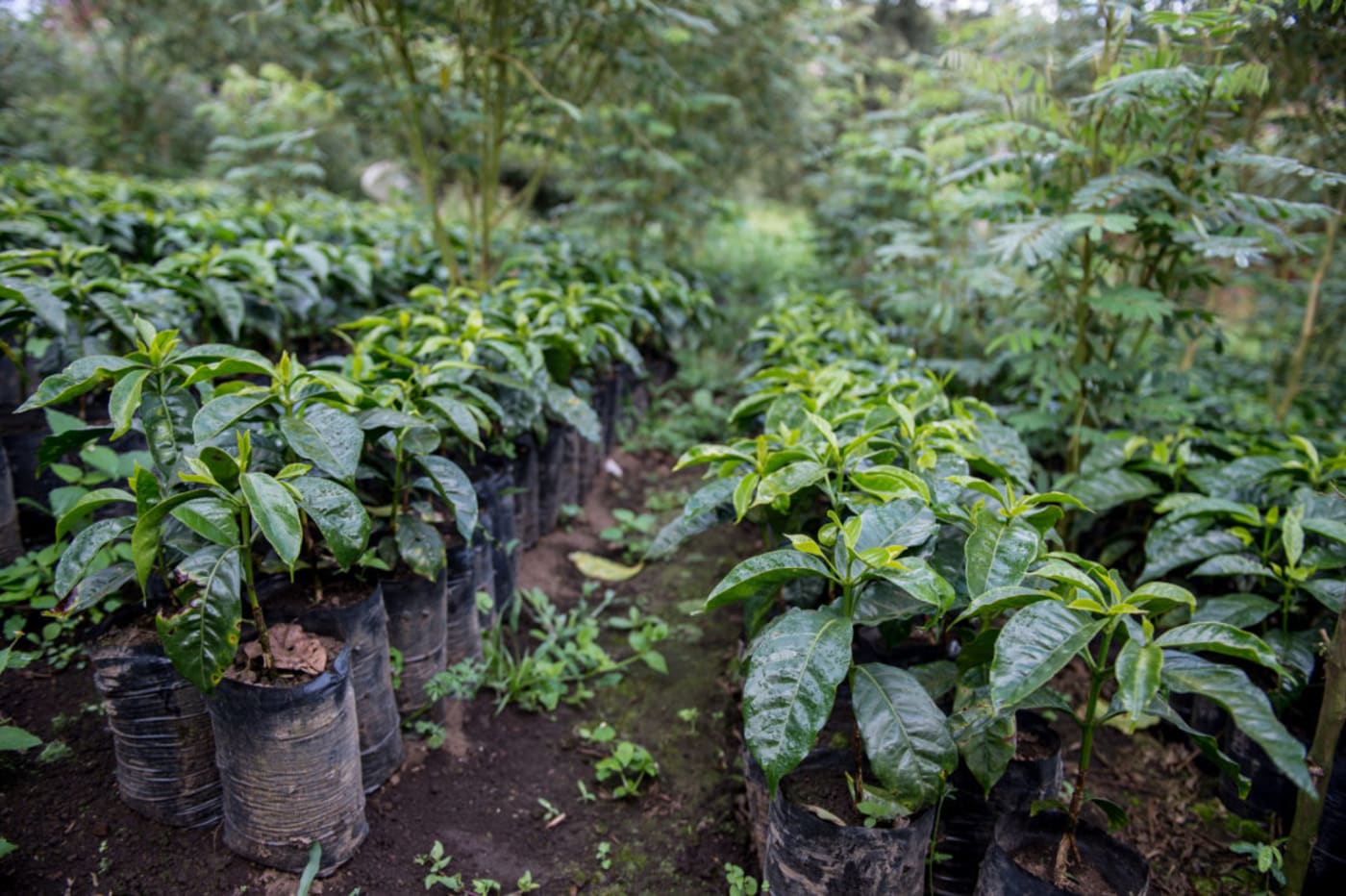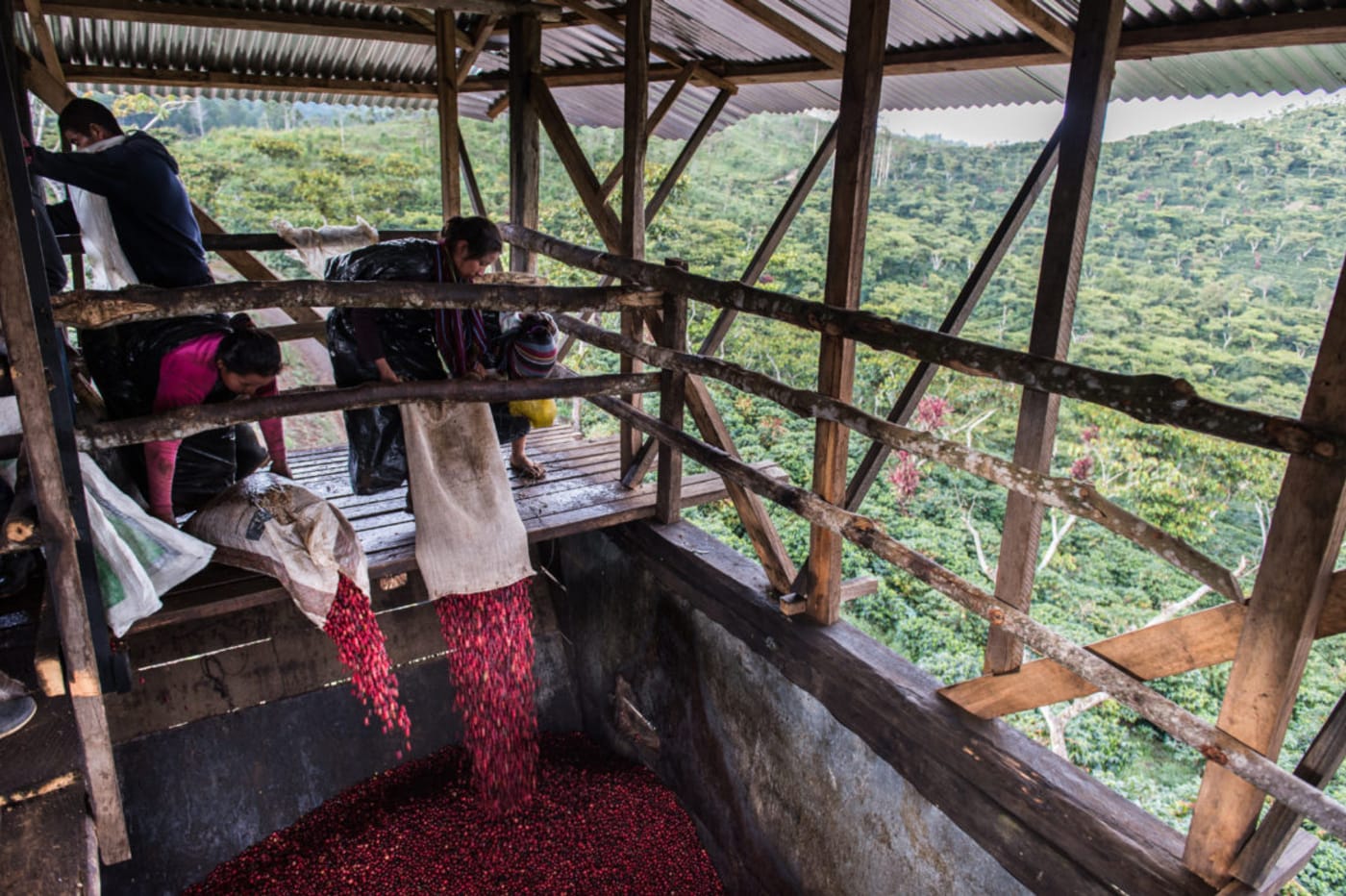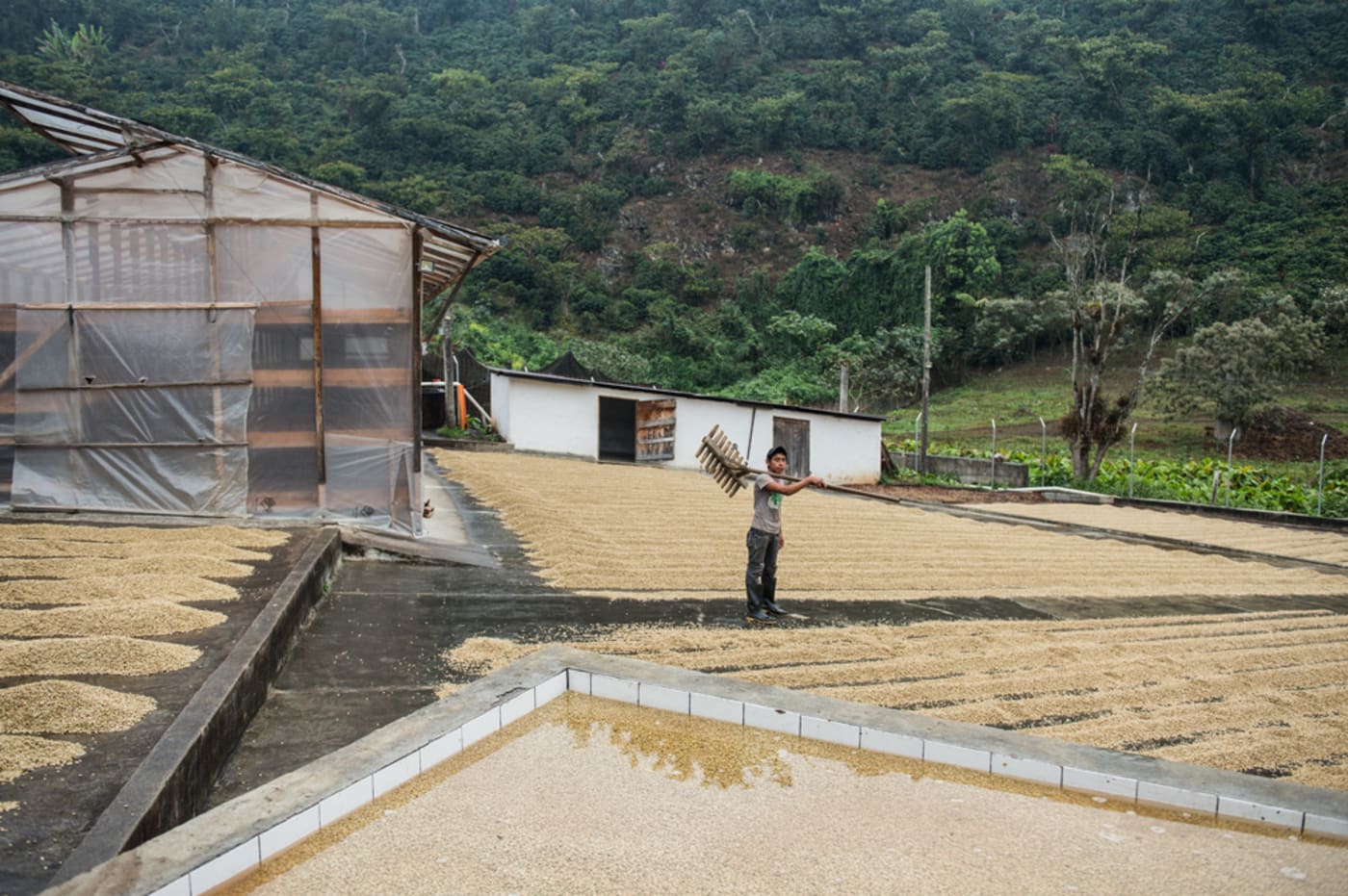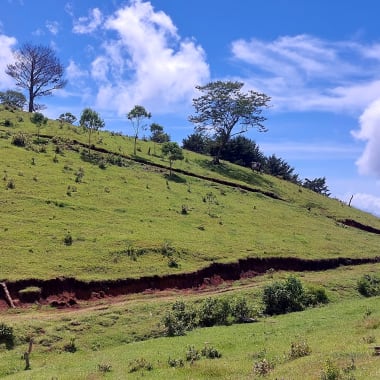-
Producer
-
Valdés Family
-
Country
- Guatemala
-
Region
-
Alta Verapaz
-
Altitude
-
1,400 - 1,600m above sea level
-
Variety
-
Process
-
Importer
-
Melbourne Coffee Merchants
-
Body
-
-
Acidity
-
-
Tasting notes
-
Stone fruit, toffee and baked peach
-
Roast style
Guatemala
Santa Isabel
Las FloresA microlot made of the best, most floral cherries of Santa Isabel’s estate and named after its taste—Las Flores (‘the flowers’ in Spanish). We taste stone fruit, toffee, and baked peach.
A microlot made of the most floral cherries of Santa Isabel’s estate, and named to honour its taste—Las Flores, which means ‘the flowers’ in Spanish.
This coffee is a special selection from Santa Isabel farm, an estate Melbourne Coffee Merchants has worked with since 2011. Each day lot that was processed at the farm was cupped, and the most floral and complex lots were put aside for this microlot, called Las Flores (meaning ‘the flowers’ in Spanish).
Santa Isabel is a fifth-generation family farm, comprising 300 hectares in the beautiful and rugged region of Alta Verapaz: a unique growing region in Guatemala with remarkable mountains, a cool climate and plenty of rainfall, dense rainforest, and impressive flora. The farm was founded in 1875 and is currently owned by Luis Valdés Sr and managed by his son, who is also called Luis—or, to his friends and family, “Wicho”. (Read a Q&A with Wicho here.)

The Valdés family care deeply about preserving their natural environment—nearly one-third of their farm (88 hectares) is occupied by indigenous forest made up of cedar, pine and mahogany trees. This helps protect natural water resources and encourage biodiversity, providing a habitat for local animal and birdlife. Wicho also grows macadamia nut trees on the farm, which he harvests, mills and sells.
The remaining 200 hectares of the farm at Santa Isabel are dedicated to coffee production and planted with a wide range of varieties. Native Inga trees are planted throughout the plantation to provide shade for the coffee trees and help enrich the soil by providing a healthy cover of foliage.
The estate’s nursery has over 18,000 seedlings of seven varieties, including Marsellesa, SL28, Gesha and Java. Wicho adopts a systematic approach to pruning to optimise ventilation and light (and reduce excess humidity), which minimises fungal disease (including leaf rust) and, in turn, the need for treatment applications.
Since late 2021, the team at Santa Isabel have been actively working to reduce the amount of chemicals and non-organic materials used on the farm. In pursuit of this, Wicho has set up a lab at the farm, and has a full-time employee dedicated to harvesting microorganisms that, when used in a solution made with other organic compounds like cow manure and coffee cherry pulp, helps to make the coffee plants more naturally resistant to disease and insects.
The results from this progressive approach have been incredible; Wicho no longer uses any pesticides on the farm and has already reduced his use of fungicides to more than half. The trees are also healthier and happier, and Wicho expects the quality to improve even more in the coming years. As he explained on our last visit, “instead of investing more in medicine, we want to invest more in nutrition.”

Santa Isabel sits at 1,400–1,600m above sea level. The farm receives a lot of rainfall—around 3,500mm, which falls regularly for 9–10 months of the year. This constant rain (much of it a gentle drizzle) means that coffee tree flowering is very staggered, with eight to nine flowerings a year, usually between April and June. This results in a prolonged harvest period, which typically runs from November–May, as the coffee cherries ripen at very different rates. To combat this, Wicho instructs at least 12 passes for picking (with breaks of up to 14 days between passes) to ensure that only the very ripest cherries are selected.
Wicho employs and trains over 40 permanent workers throughout the year, and up to 500 temporary workers during the harvest period (though he only managed to find 120 this past year), who come from up to 20 miles away to work on the farm. Wicho has commented that although many farms in the region find it increasingly difficult to secure labour for the entirety of the harvest, Santa Isabel has a stable and reliable workforce, despite their reputation for being very demanding in regards to selective picking. In addition to being paid fairly, a picker at Santa Isabel can harvest up to 160 pounds of cherry a day, which is a great day’s yield, meaning that many of the same workers come back year after year. Wicho knows most of the workers by name, and there is an open and respectful dynamic amongst the team.
We have been visiting Santa Isabel every year since 2013. The first thing that stood out to us on our initial visit to the farm was the immaculate condition of the wet mill (located on the farm itself), and the care and precision that goes into processing the coffee. Wicho is fastidious in all aspects of his approach to farming and processing and is continuously evaluating and investing in improvements at the farm to further enhance quality. Most recently this has included building a greenhouse to dry his coffee, as well as upgrades to the equipment used to ensure it is the very best available on the market.

Learn everything about this coffee:
Ethical, traceable sourcing
This page has all the sourcing information (variety, process, region, story, importer, and more) that our importers share with us, and give us permission to use.
The transparency helps us talk confidently about the quality and background of our product, and it helps you know exactly what you’re buying.
Learn more:
Coffee page transparency legend
Our coffee philosophy
Our business approach
Fresh harvest coffee
We only source and roast coffee from each country’s latest harvest season (so the green coffee is never older than 1 year from the time of picking, processing and packing). This ensures the sensory qualities are always at their peak and unaffected by excessive ageing.
Roasted for espresso and filter (best enjoyed black)
Roast style: omni. Omni roasts are designed to brew and taste great both as espresso and filter. Our omni single origins generally sit on Agtron values in the ~70-60 value range. So, technically, they are somewhere in the lighter side of the medium spectrum.
Designed for espresso and filter brewing. Best enjoyed black.
Learn more:
Our Loring Kestrel S35 roaster
Our roasting style and approach
Best brewed within days 15-49 post-roast
The ‘fresh is best’ saying doesn’t apply to coffee (contrary to popular belief). Waiting before opening and brewing your bag of whole coffee beans helps develop peak flavour and acidity.
But heads up: if you buy pre-ground coffee, brew it as soon as possible.
Learn more:
Our recommended brewing window
Try our custom brewing recipes
Our recipes and ratios are tailored to our coffee sourcing and roasting styles, bringing the best flavour and feel out of each coffee.
For pour over, immersion, and other filter brewing styles, check our brew guides.
For our espresso single origins, we recommend a coffee:yield ratio of 1:3:
- Dose: 20g ground coffee
- Yield: 60g espresso
- Total brew time: ~24-28 seconds
This is just a starting point! We encourage you to experiment, taste, and adjust to find the recipe that you enjoy the most.
Learn more:
Our espresso brew guide (single origin)
Brewing ratio calculator
Packaging and sustainability
- Bags: ABA-certified home compostable (AS 5810-2010)
- Labels: recyclable
- Valves (only on +250g bags): general waste
- Box and tape (online orders): recyclable
Learn more:
Our packaging
Variety
Caturra variety
Caturra is a natural mutation of Bourbon that was originally discovered in Brazil in 1937, considered to be the first naturally occurring mutation ever discovered.
The location
Coffee from Guatemala
Guatemala’s production of coffee first grew in the 1860s on the back of a declining indigo trade, which had previously existed as it’s main export. Up until 2011 Guatemala was in the top 5 highest producing coffees nations in the world, before being overtaken by Honduras.
Farm processes
Washed process
Machines are used to remove the flesh from the coffee cherry before being fermented in water, washed again, and finally sun dried. This process tends to result in more distinct, cleaner flavours.

Subscribe to a world of coffee
Discover a new single origin coffee from Sample every 1-5 weeks with no delivery fees.
No up-front purchase, and you can pause, cancel, or change plans at any time.
Available to order online this week:

El Salvador Manuel Castañeda
Flavours of toffee apple, cranberry, dulce de leche
Body Acidity
Honey Pacamara
March 2025 harvest
Roasted omni for filter and espresso
El Salvador Manuel Castañeda online
Kenya Karimikui
Flavours of blood orange, blackberry, plum jam
Body Acidity
Washed Batian, SL28, SL34, Ruiru 11
November 2024 harvest
Roasted omni for filter and espresso
Kenya Karimikui online
Peru Miguel Estela
Flavours of honeydew melon, white grape, marmalade
Body Acidity
Washed Marshell
August 2025 harvest
Roasted omni for filter and espresso
Peru Miguel Estela online
Ethiopia Tadese Teko
Flavours of bergamot, mandarin, mango
Body Acidity
Washed Ethiopian Heirloom
January 2025 harvest
Roasted omni for filter and espresso
Ethiopia Tadese Teko online